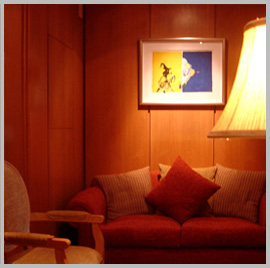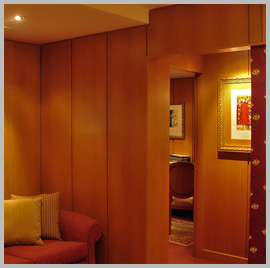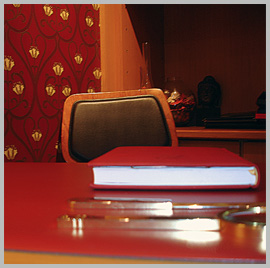At sometime or other in your life you may need a lawyer for some reason
Then Artur da Costa Bruno law office in the Algarve is the right choice. Our office in the Algarve is to form a close working relationship with each client. As a result we have long-standing and valued associations with both private and business clients.
Our aim is to establish a good relationship with you which will lead to a long-term working arrangement. We value our clients. We respect our clients' confidence. As your solicitors we want to provide you with more than just advice on the law or the process; we want you to come to regard us as a source of impartial, experienced and practical advice on the widest range of things, where there aren't necessarily stock answers - from the reasonableness and practicality of the terms of a lease for your new business, to how best to divide your estate when you fear a family squabble after your death. It is a responsibility we take very seriously.
Costa Bruno law office has particular experience in the area of Portuguese Property, through helping clients buy their dream home in Portugal. But also deals with Commercial Property, Residential and Touristic Conveyancing, Buying and Selling a Business, Leases, Personal Injury, Employment Law, Family Law, Litigation and Wills and Probate.
We are highly approachable and always available. Our innovative and practical business-minded solutions, presented with a down-to-earth, commonsense approach, mean that our clients come back again and again for all their legal needs.
We are located in the Algarve and our office is conveniently situated in Faro (the capital), close to the Marina of Faro and only a few minutes of the airport.
Read More
Our latest news
FRIENDLY PORTUGAL
Friendly Portugal
Portugal is the seventh friendliest country in the...
FRIENDLY PORTUGAL
Friendly Portugal Portugal is the seventh friendliest country in the world for tourists, due to its hospitality and warm-hearted people, according to a recent study by the World Economic Forum. The study, ?The Travel & Tourism Competitiveness Report 2013?, assesses 140 economies worldwide and takes into consideration the competitiveness of these countries regarding travel and tourism, and the chosen theme is ?Reducing barriers to economic growth and job creation?. This report explores the potential and influence that the travel and tourism industries have upon the country?s economy and also takes into consideration job creation, which is essential for any country?s development. In the list of 140 countries, Portugal is in seventh place (scoring 6.65 from a maximum of 7 points) behind Macedonia (4th position), Austria (5th position) and Senegal (6th position). At the top of the list, Icelanders are those who better receive foreign visitors, followed by New Zealanders and Moroccans. Regarding tourist infrastructures, Portugal is among the top 20. In terms of cultural heritage the country occupies the 13th position and 20th position relating to the cultural places inscribed in UNESCO?s World Heritage list. The Portuguese natural heritage occupies 45th position in this study. In short, The Travel & Tourism Competitiveness Report of the World Economic Forum evaluated several issues, including economic, legal, environmental and cultural factors, as well as infrastructures and the tourism labour market. Overall, the various indicators in this study leave Portugal in 20th place. Portugal is one of the countries that has obtained better results in terms of environmental concerns and also adequate access to sanitary infrastructures. In addition, the quality of Portuguese roads is also highlighted, as well as the number of doctors per thousand inhabitants and the time required to start a business. By Algarve Resident The Algarve`s community newspaper in English Published on 11 Apr 2013
What Britain could learn from Portugal´s drugs policy.
What Britain could learn from Portugal´s drugs policy.
A decade ago...
What Britain could learn from Portugal´s drugs policy.
What Britain could learn from Portugal´s drugs policy. A decade ago Portugal took a radical new approach to illegal drugs by treating users as people with social problems rather than as criminals. Could it work in the UK? Susannah is being treated in the physiotherapy unit of the Centro das Taipas, a vast, pink former mental institution close to Lisbon´s airport, where she is having hot towels pressed on to her lower back. Built during the second world war, the wards of wing 21B are these days committed to the treatment of drug addiction. Susannah is a long-term drug user and is intelligent but troubled. She first smoked cannabis at 13. At 17, she began taking heroin with the father of her children. Now 37, she has been dependent on drugs ? mostly heroin ? for almost two decades. "I lived in Spain for a while," she tells me. "And London for a year, working in the restaurants with a friend. I went there to try to get off drugs but ended up on crack." These days, however, Susannah, who also suffers from a bipolar disorder, is one of the beneficiaries of Europe´s most tolerant drug regime. For in Portugal, where Susannah lives, drugs have not only been decriminalised for almost a decade, but users are treated as though they have a health and social problem. Addicts such as Susannah are helped by the law, not penalised and stigmatised by it. In the midst of the recently resurgent debate in Britain about whether our drug laws are working ? or require a major overhaul ? the experience of Portugal has become a crucial piece of evidence in favour of a radical approach that has confounded the expectations of even its conservative critics, so much so that in the last month British officials have asked their Portuguese counterparts for advice, with the only caveat being that they avoid mentioning the word "decriminalise". It is, perhaps, an unnecessary sensitivity. For the reality is that, despite liberalising how it regards drug possession ? now largely an administrative problem rather than a criminal offence ? Portugal has not become a magnet for drug tourists like Amsterdam, as some had predicted. British officials are not the only ones who have made the pilgrimage to Portugal in recent years ? health specialists, officials and journalists from around the world have all made the journey to see what Portugal is doing right, even as their own countries are still struggling. Nor has it seen its addict population markedly increase. Rather it has stabilised in a nation that, along with the UK and Luxembourg, once had the worst heroin problem in Europe. For Susannah ? as for the many long-term addicts now on methadone replacement and other programmes, and for the country´s health professionals ? the country´s recent social history is divided into what the world of addiction and drug use was like before Law 30 was approved in November 2000, and what it is like now. Before the law, which decriminalised (or depenalised) possession of drugs but stil
The UK benefits available to Britons living in Portugal
Foreign & Commonwealth Office
Living in Portugal
The UK benefits...
The UK benefits available to Britons living in Portugal
Foreign & Commonwealth Office Living in Portugal The UK benefits available to Britons living in Portugal and information on driving regulations in Portugal. Overview If you are a British citizen or British subject with right of abode in the UK, you do not require a visa to enter Portugal. Other British nationals should confirm the current entry requirements with their nearest Portuguese Embassy. A valid British passport must be held for entry to and exit from Portugal. There is no minimum passport validity requirement but you should ensure that your passport is valid for the duration of your visit. This guide sets out essential information for British nationals residing in Portugal, including British and Portuguese pension and benefits entitlements, and vehicle and driving licence laws. Register with Portuguese Immigration Service (Serviço de Estrangeiros e Fronteiras (SEF)) or local Town Hall (Câmara Municipal) Registration Certificate (Certificado de Registo) EU citizens may remain in Portugal for a maximum of 3 months without registering. If you intend to remain in Portugal for more than 3 months, you must apply for a registration certificate from the Portuguese Immigration Service - the Serviço de Estrangeiros e Fronteiras (SEF) - or Town Hall (Câmara Municipal) in your area of residence. This has to be done within 4 months of arrival in Portugal. This certificate will be valid for 5 years from the date of issue, or for the period of intended residence. For entitlement to local services - i.e. schools, healthcare, and social security - people living in Portugal should register with the Portuguese authorities. How to claim UK state pensions in Portugal The UK basic state pension is payable in Portugal. The UK state pension changed in April 2010. More people now qualify for a full basic state pension. If you live but have not worked in Portugal, you should claim your UK state pension by contacting the International Pension Centre in the UK on telephone: +44 (0)191 218 7777. If you live in, and have worked at some point in Portugal you should normally apply to the Centro Distrital de Segurança Social (CDSS) for both your UK and Portuguese pensions. If you have only ever worked in the UK, you should see our information on applying for a UK state pension. Moving to Portugal once in receipt of a UK state pension If you are moving to Portugal from the UK you should inform the International Pension Centre (IPC) of the changes to your circumstances. This will prevent any problems with your pension payments. UK pension credit is not payable in Portugal. If you decide to move to Portugal permanently you must inform the office that pays your benefits before you leave. Life certificates If you have received a Life Certificate from the UK Department for Work & Pensions it is important that you reply as quickly as possible otherwise your benefit may be stopped. There are four options available to you: 1. Go to










